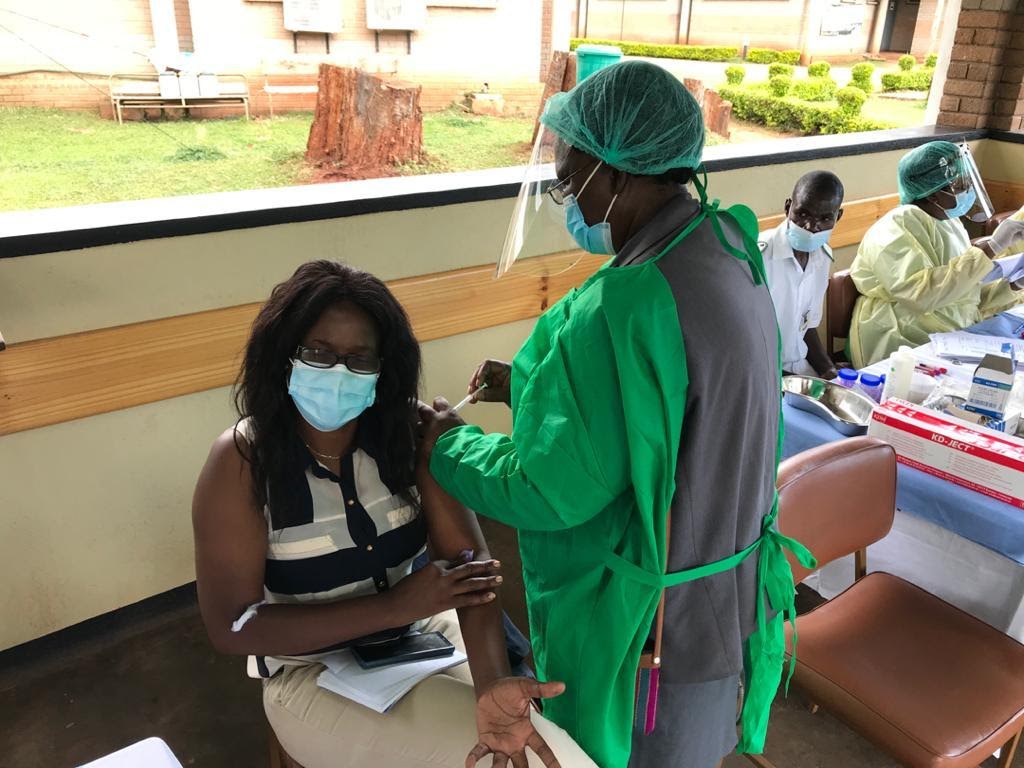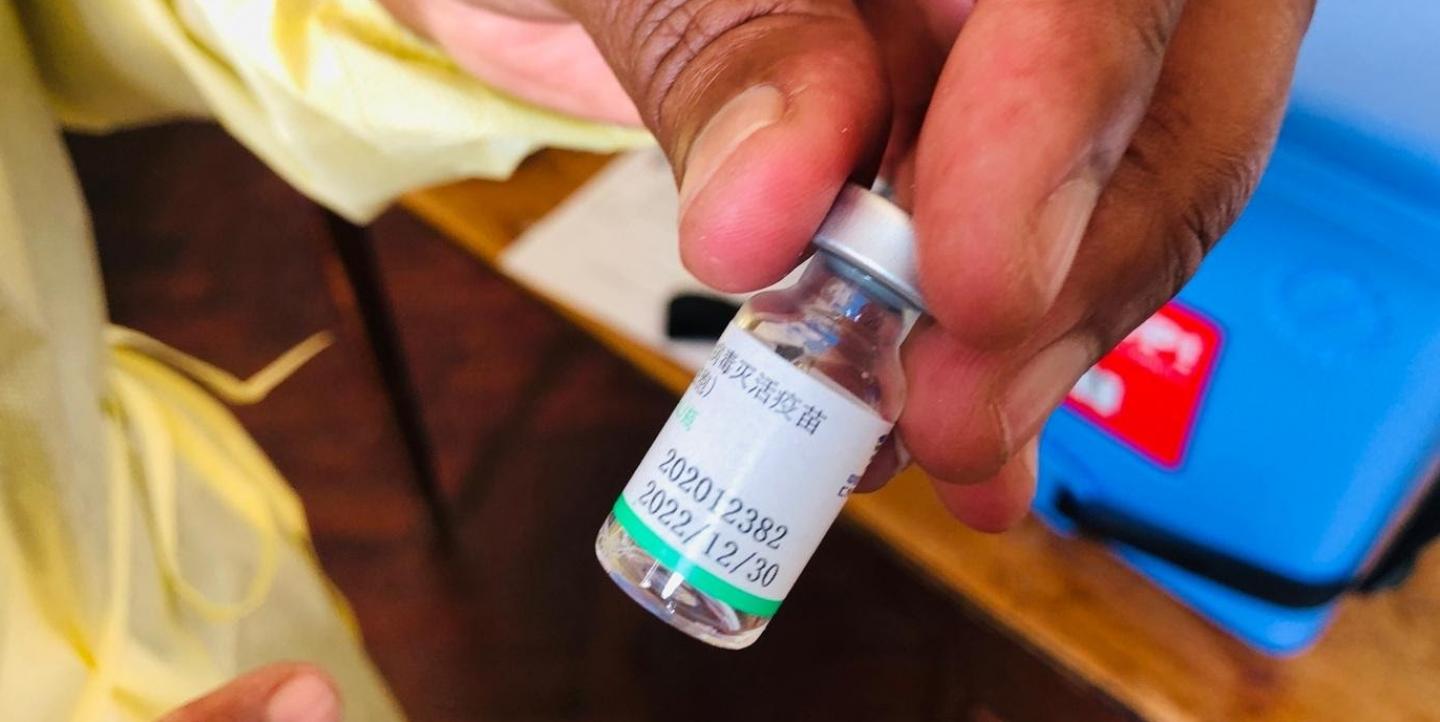Over 2,000 journalists in Zimbabwe are included on the COVID-19 vaccination priority list alongside 60,000 frontline health workers who are to be vaccinated before the general public.
The country received a donation of 200,000 doses of the Sinopharm vaccine from China in mid-February. In an interview during the vaccine launch in Bulawayo, the director of the city’s Health Services Department, Dr. Edwin Sibanda, confirmed that journalists are frontline workers who have relayed crucial information about COVID-19 to the entire population, and were exposed to the virus as they went about collecting news.
“The important thing about journalists being part of the vaccination campaign is first and foremost, they carry the message to a lot of people,” said Dr. Sibanda. “A lot of people rely on the information from journalists, they take it as authentic and they believe it.”
[Read more: Tips for journalists reporting on COVID-19 vaccines]
In Zimbabwe, the first recorded death from COVID-19 was that of a journalist, which alerted many people to the realities of the virus. According to the Geneva-based organization, the Press Emblem Campaign, more than 600 journalists died of COVID-19 in 59 countries over 10 months in 2020.
Dr. Sibanda indicated it was therefore fitting that the Zimbabwean government saw it vital for journalists across the country to be prioritized. He said once vaccinated journalists could perform their duties of informing and educating the public about the vaccines while they were protected.
“There are a lot of other people who are not journalists but are spreading a lot of misinformation and probably disinformation,” he said. “This is where we really need journalists well informed on health issues, in particular the vaccination drive and educating people about vaccines.”
Abigail Tembo, the health news editor at the Zimbabwe Broadcasting Corporation, was among the first to be vaccinated at the vaccination launch.
“We as journalists are exposed every day from the whole news chain — the reporter, cameraperson, editor, producer and presenter are on the line of fire as far as the virus is concerned,” she said. “We interact with a lot of people on a daily basis, yet we do not have the privilege of asking for a COVID-19 certificate or doing temperature checks as we conduct interviews or do vox pop on the street.”

According to the Ministry of Information, Publicity and Broadcasting Services in Zimbabwe, 2,497 journalists were targeted in the vaccination program.
Rumbidzayi Zinyuke, a senior reporter at The Manica Post, also volunteered to get the Sinopharm vaccine in Harare. She noted that some journalists were a bit hesitant to come forward to get the COVID-19 vaccine.
“I’m sure in the near future, we will see more journalists coming forward because journalists are at the forefront, more exposed than other people,” she said. “We just have to embrace it and then move forward.”
[Read more: Equity in vaccine access and distribution: Key takeaways]
Zinyuke said it was important for journalists to get the COVID-19 vaccine at the initial stage, and that it might even change their reporting. “If one has gone through what they are writing about, what they are talking about, they’ll have a deeper understanding,” she said. “They can actually write what they have been through,” she said.
The regional campaigns coordinator for the Media Institute of Southern Africa (MISA) - Zimbabwe, Nqaba Matshazi, said that his organization campaigned for the inclusion of Zimbabwean journalists to be put on the list of frontline workers. “We campaigned for journalists to be put on the essential services list,” he said. “It goes without saying that they should be vaccinated alongside those in essential services.”
Every country defines its own guidelines for vaccine eligibility, and it’s unclear just how many countries will consider journalists on their priority lists. But MISA is not the only organization asking governments to include journalists as essential workers. International Federation of Journalists’ affiliates in Brazil, Peru and Uruguay are all advocating for journalists to be considered for vaccine priority.
Accurate information is critical for fighting a pandemic, said Matshazi. But in order to provide the most accurate, up-to-date information for the public, journalists need to be out in the field, which puts them at risk.
“They have to follow the news,” he said. “For example, when the vaccine arrived last week, they were at the airport at 2 or 3 a.m. And when the vaccine is administered at clinics and hospitals — areas that are high risk by nature — you will find journalists there.”
Main image courtesy of Lungelo Ndhlovu.
Lungelo Ndhlovu is a multiple-award winning international journalist based in Bulawayo, Zimbabwe. He specializes in news writing, photography and video production, covering major news, features and local events for various media organizations. He also researches and writes about news stories on digital platforms and visual journalism.


